#american army campaign
Text
Death Traps: The Survival of an American Armored Division in World War II :: Belton Y. Cooper
Death Traps: The Survival of an American Armored Division in World War II :: Belton Y. Cooper

View On WordPress
#0-8914-1670-6#1939 1945 war#american army#american army campaign#army history#battle bulge#books by belton y cooper#falaise pocket#first edition books#german tanks#main battle tanks#military history#siegfried line#soissons#stephen e ambrose#tank maintenance#tank repair#tank soldiers#tank warfare#united states armored divisions#world war 2#world war ii#world war two
0 notes
Text
Biden administration considering giving members of Hamas permanent safe haven in the U.S. with access to housing and a pathway to citizenship | Daily Mail Online
#WTF#fjb#outrageous#do not let this happen#trump campaign#trump's army#trump#trump 2024#president trump#ivanka#repost#america first#americans first#america#donald trump#democrats
76 notes
·
View notes
Text

Char M4A3 (76) Sherman à l'angle de la rue Schillingsstrasse et Trierbachweg dans le quartier de Gürzenich à Düren tirant sur des allemands retranchés – Campagne de la ligne Siegfried – Bataille de la forêt de Hürtgen – 14 décembre 1944
Photo via https://www.worldwarphotos.info/
#WWII#campagne de la ligne siegfried#siegfried line campaign#bataille de la forêt de hürtgen#battle of hürtgen forest#armée américaine#american army#US Army#char#tanks#char moyen#medium tank#M4 Sherman#M4#sherman#Gürzenich#Düren#allemagne#germany#14/12/1944#12/1944#1944
74 notes
·
View notes
Text
#OTD in 1863 – American Civil War | Thomas Francis Meagher on Battle of Chancellorsville.
Report of Brig. Gen. Thomas Francis Meagher, U. S. Army, commanding Second Brigade
APRIL 27-MAY 6, 1863 –– The Chancellorsville Campaign
BANKS’ FORD, NEAR FALMOUTH, VA.
April 28, 1863––1.30 p.m.
Maj. JOHN HANCOCK,
Assistant Adjutant-General, Hancock’s Division.
MAJOR: I have the honour to inform the major-general commanding the division that, in accordance with instructions received from him, I…
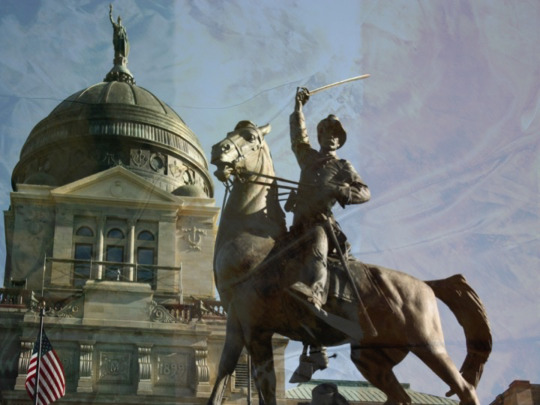
View On WordPress
#American Civil War#Battle of Chancellorsville#Brigadier Thomas Francis Meagher#General Thomas Francis Meagher#The Chancellorsville Campaign#Thomas Francis Meagher#U.S. Army
2 notes
·
View notes
Text
A Contest of Heavyweights
A Contest of Heavyweights
You could compare the Overland Campaign to a prize fight between two heavyweights. It put the best two generals in the American Civil War, Ulysses S. Grant (North) and Robert E. Lee (South), against each other in a contest that lasted several weeks and played a dominant role in the war’s outcome. The Overland Campaign is the primary subject of “Grant vs. Lee” (Savas Beatie, 2022). This is the…
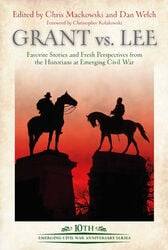
View On WordPress
#American Civil War#Civil War Vacation#Confederates#Overland Campaign#Robert E Lee#Ulysses S Grant#Union Army
0 notes
Text
[Calcalist is Private Israeli Media]
"We have a huge deficit of ammunition not just in Ukraine but all over the world. We understand we should produce this here in Ukraine because all around the world it’s finished, it’s depleted. All the warehouses are empty," said Ukrainian Prime Minister Denys Shmyhal to the "Financial Times" in October of last year, addressing the ammunition situation of the Ukrainian army, which is interconnected with the challenges faced by the IDF.
The increased ammunition usage in the wars in Gaza and Ukraine has led to an unprecedented global shortage of ammunition of all types. While the IDF tries not to address the issue publicly, Major General Eliezer Toledano admitted last month that the IDF is reducing air attacks, emphasizing the necessity to "manage the economy of armaments" because the war will last a long time. Prime Minister Benjamin Netanyahu also commented on the matter, stating that "we need three things from the U.S.: armaments, armaments, armaments." At a press conference two weeks ago, Netanyahu announced that Israel is preparing the Israeli defense industries to "cut off dependence on the world," a goal that is not realistic in any way.[...]
[L]ast week the Director General of the Ministry of Defense Eyal Zamir concluded a huge deal with the American government for the supply of aerial ammunition in the hundreds of millions of dollars, and so far over 25,000 tons of weapons have been sent to Israel since the beginning of the war in about 280 aircraft and about 40 ships. The Israeli defense industry is also tasked with filling the IDF's stocks. About two weeks ago it was published in Calcalist that the Israeli companies postponed the supply of weapons worth more than $1.5 billion to their customers across the world to divert resources for the IDF's combat needs and that in the last three months, the Ministry of Defense ordered more than NIS 10 billion ($2.7 million) worth of weapons from them. It should be noted that the shortage does not stem from a lack of budget but from a lack of supply, and the Treasury does not restrict the IDF from purchasing ammunition of any kind.
The tremendous need for armaments stems from the unusual amount of bombings that the IDF has carried out in Gaza since the outbreak of the war. Two weeks ago, the army announced that 30,000 targets had been attacked in Gaza. A security source told Calcalist that the rate of fire the IDF is using in the current war is similar to that of a "superpower," is comparable only to the capabilities demonstrated by the U.S., and probably also exceeds the number of armaments of the Russians in the campaign against Ukraine.[...]
Another reason [for the increase in targets bombed] is that in the current war, the IDF adopted a policy of a lighter finger on the trigger [sic] regarding damage to infrastructure and Hamas operatives who are in a civilian environment, thus increasing the ability to hit targets that were not previously attacked. In addition to these reasons, there is also the added pressure from the political level, as well as from the [Israeli] public, who demand an increase in air force bombing to prevent as much as possible a risk to the forces on the ground.[...]
[O]ne should ask whether, considering the existing ammunition stockpile, this policy may not harm the IDF's readiness to carry out future missions, especially given the existing security challenges and the probable scenario in which the IDF will be forced to [sic] carry out an attack in southern Lebanon as well. The IDF may be forced to better clarify its limitations to the politicians to avoid reaching an extreme scenario of an ammunition shortage, or in the words of General Toledano: "There is no infinite army."
28 Jan 24
319 notes
·
View notes
Text
It's astounding to me that people can refer to the military campaign in Gaza in the terms that they do.
You wanna talk proportionality? Let's! Here's something to give you some proportions.
Over the course of just two days, on Mar 9 and 10, 1945, the Tokyo bombing led to an estimated 80,000 to 130,000 civilians dead. After just two days!
And we still don't call that a genocide, because we have a basic understanding that this term refers to the intention of one nation to completely destroy another, while the Americans were not set on killing every last Japanese. We can discuss whether such intense bombing of civilians was right, but there is no doubt that the goal wasn't a destruction of the entire Japanese nation.
According to Hamas' figure as reported on Nov 15, meaning after 40 days of fighting, the number of Palestinians killed in Gaza is 11,500.
When looking at this comparison, take into account that the population density of Tokyo in 1940 was about 1,337 people per square mile. The population density of Gaza City is (as reported by NBC on Oct 10) 15,000 people per square mile. So we can assume that if an army had indiscriminately bombed Gaza City the way Tokyo was, over the course of just two days, the death toll would have been even higher than the actual WWII one.

Hamas, as a genocidal terrorist organization, is NOT reliable in giving us the casualties, so its figure is likely inflated. It also doesn't distinguish civilians from terrorists (who are legitimate targets in this war), and it doesn't say how many Gazans were killed by Palestinian terrorists (whether due to the over 1,000 rockets that malfunctioned and fell inside Gaza, due to Hamas shooting civilians trying to evacuate to the south or due to terror tunnels collapsing because of the fighting, and killing the civilians who were living above).
And still!
Even if we accept Hamas' figure as is, and we pretend like every single one of the people killed is a civilian, meaning we decide that somehow the IDF has not managed to kill a single terrorist in 40 days of fighting (even though it has identified and published the names of some of the highest ranking Hamas terrorists it managed to eliminate, as well as terrorists identified as having participated in the Oct 7 massacre, and even though Hamas confirmed at least one), and we ignore the fatalities caused by Hamas and the Palestinian Islamic Jihad (PIJ) themselves, this does not amount to a genocide. It does not even amount to indiscriminate bombing.
Just to make it clear, this isn't meant to say that the death of civilians in Gaza isn't regrettable. Of course it is! This post is just meant to point out that many of the people talking about this online seem to NOT have any kind of clue what indiscriminate bombing, let alone a genocide, actually looks like.
(for all of my updates and ask replies regarding Israel, click here)
#israel#israeli#israel news#israel under attack#israel under fire#israelunderattack#terrorism#anti terrorism#antisemitism#hamas#antisemitic#antisemites#jews#jew#judaism#jumblr#frumblr#jewish#resources
581 notes
·
View notes
Text
1968 [Chapter 6: Athena, Goddess Of Wisdom]

Series Summary: Aemond is embroiled in a fierce battle to secure the Democratic Party nomination and defeat his archnemesis, Richard Nixon, in the presidential election. You are his wife of two years and wholeheartedly indoctrinated into the Targaryen political dynasty. But you have an archnemesis of your own: Aemond’s chronically delinquent brother Aegon.
Series Warnings: Language, sexual content (18+ readers only), violence, bodily injury, character deaths, New Jersey, age-gap relationships, drinking, smoking, drugs, pregnancy and childbirth, kids with weird Greek names, historical topics including war and discrimination, math.
Word Count: 5.2k
Let me know if you’d like to be tagged! 🥰
💜 All of my writing can be found HERE! 💜
Here at the midway point in our journey—like Dante stumbling upon the gates of the Inferno—would it be the right moment to review what’s at stake? Let’s begin.
It’s the end of August. The delegates of the Democratic National Convention in Chicago officially vote to name Aemond the party’s presidential candidate. His ascension is aided by 10,000 antiwar demonstrators who flood into the city and threaten to set it ablaze if Hubert Humphrey is chosen instead. At the end—in his death rattle—Humphrey begs to be Aemond’s running mate, one last humiliation he cannot resist. Humphrey is denied. Eugene McCarthy, dignity intact, boards a commercial flight to his home state of Minnesota without looking back.
Aemond selects U.S. Ambassador to France, Sargent Shriver, to be his vice president. Shriver is a Kennedy by marriage—his wife, JFK’s younger sister Eunice, just founded the Special Olympics—and has previously headed the Office of Economic Opportunity, the Peace Corps, and the Chicago Board of Education. He also served as the architect of the president’s “War on Poverty” before distancing himself from the imploding Johnson administration. Shriver is not a concession to fence-sitting moderates or Southern Dixiecrats, but an embodiment of Aemond’s commitment to unapologetic progressivism. Richard Nixon spends the weekend campaigning in his native California, a gold vein of votes like the mines settlers rushed to in 1848. George Wallace announces that he will run as an Independent. Racists everywhere rejoice.
Phase III of the Tet Offensive is underway in Vietnam; 700 American soldiers have been killed this month alone. Riots break out in military prisons where the U.S. Army is keeping their deserters. The North Vietnamese refuse to allow Pope Paul VI to visit Hanoi on a peace mission. President Johnson calls both Aemond and Nixon to personally inform them of this latest evidence of the communists’ unwillingness to negotiate in good faith. Daeron and John McCain remain in Hỏa Lò Prison. The draft swallows men like the titan Cronus devoured his own children.
In Eastern Europe, the Russians are crushing pro-democracy protests in the largest military operation since World War II as half a million troops roll into Czechoslovakia. In Caswell County, North Carolina, the last remaining segregated school district in the nation is ordered by a federal judge to integrate after years of stalling. On the Fangataufa Atoll in the South Pacific, France becomes the fifth nation to successfully explode a hydrogen bomb. In Mexico City, 300,000 students gather to protest the authoritarian regime of President Diaz Ordaz. In Guatemala, American ambassador John Gordon Mein is murdered by a Marxist guerilla organization called the Rebel Armed Forces. In Columbus, Ohio, nine guards are held hostage during a prison riot; after 30 hours, they’re rescued by a SWAT team.
The latest issue of Life magazine brings worldwide attention to catastrophic industrial pollution in the Great Lakes. The first successful multiorgan transplant is carried out at Houston Methodist Hospital. The Beatles release Hey Jude, the best-selling single of 1968 in the U.S., U.K., Australia, and Canada. NASA’s Apollo lunar landing program plans to launch a crewed shuttle next year, just in time to fulfill John F. Kennedy’s 1962 promise to put a man on the moon “before the end of the decade.” If this is successful, the United States will win the Space Race and prove the superiority of capitalism. If it fails, the martyred astronauts will join all the other ghosts of this apocalyptic age, an epoch born under bad stars.
The night sky glows with the ancient debris of the Aurigid meteor shower. From down here on Earth, Jupiter is a radiant white gleam, visible with the naked eye and admired since humans were making cave paintings and Stonehenge. But Io is a mystery. With a telescope, she becomes a dust mote entrapped by Jupiter’s gravity; to the casual observer, she doesn’t exist at all.
~~~~~~~~~~
What was it like, that very first time? It’s strange to remember. You’re both different people now.
It’s May, 1966. You and Aemond are engaged, due to be married in three short weeks, and if you get pregnant then it’s no harm, no foul. In reality, it will end up taking you over a year to conceive, but no one knows that yet; you are living in the liminal space between what you imagine your life will be and the cold blade of the truth. Aemond has brought you to Asteria for the weekend, an increasingly common occurrence. The Targaryens—minus one, that holdout prodigal son, always glowering from behind swigs of rum and clouds of smoke—have already begun to treat you like a member of the family. The flock of Alopekis yap excitedly and lick your shins. Eudoxia learns your favorite snacks so she can have them ready when you arrive.
One night Aemond takes your hand and leads you to Helaena’s garden, darkness turned to twilight in the artificial luminance of the main house. You can hear distant voices, chatter and laughter, and the Beatles’ Rubber Soul spinning on the record player in the living room like a black hole, gravity that not even light can escape when it is wrenched over the event horizon.
You’re giggling as Aemond pulls you along, faster and faster, weaving through pathways lined with roses and sunflowers and butterfly bushes. Your high heels sink into soft, fertile earth; the air in your lungs is cool and infinite. “Where are we going?”
And Aemond grins back at you as he replies: “To Olympus.”
In the circle of hedges guarded by thirteen gods of stone, Aemond unzips your modest pink sundress and slips your heels off your feet, kneeling like he’s proposing to you again. When you are bare and secretless, he draws you down onto the grass and opens you, claims you, fills you to the brim as the crystalline water of the fountain patters and Zeus hurls his lightning bolts, an eternal storm, unending war. It’s intense in a way it never was with your first boyfriend, a sweet polite boy who talked about feminist theory and followed his enlightened conscience all the way to Vietnam. This isn’t just a pleasant way to pass a Friday night, something to look forward to between differential equations textbooks and calculus proofs. With Aemond it’s a ritual; it’s something so overpowering it almost scares you.
“Aphrodite,” Aemond murmurs against your throat, and when you try to get on top he stops you, pins you to the ground, thrusts hard and deep, and you try not to moan too loudly as you surrender, his weight on you like a prophesy. This is how he wants you. This is where you belong.
Has someone ever stitched you to their side, pushing the needle through your skin again and again as the fabric latticework takes shape, until their blood spills into your veins and your antibodies can no longer tell the difference? He makes you think you’ve forgotten who you were before. He makes you want to believe in things the world taught you were myths.
But that was over two years ago. Now Aemond is not your spellbinding almost-stranger of a fiancé—shrouded in just the right amount of mystery—but your husband, the father of your dead child, the presidential candidate. You miss when he was a mirage. You miss what it felt like to get high on the idea of him, each taste a hit, each touch a rush of toxins to the bloodstream.
Seven weeks after your emergency c-section, you are healing. Your belly no longer aches, your bleeding stops, you can rejoin the living in this last gasp of summer. Ludwika takes you shopping and you pick out new swimsuits; you’ve gone up a size since the baby, and it shows no signs of vanishing. In the fitting room, Ludwika chain-smokes Camel cigarettes and claps when you show her each outfit, ordering you to spin around, telling you that there’s nothing like Oleg Cassini back in Poland. You plan to buy three swimsuits. Ludwika insists you get five. She pays with Otto’s American Express.
That afternoon at home in your blue bedroom, you get changed to join the rest of the family down by the pool, your first swim since Ari was born. You choose Ludwika’s favorite: a dreamy turquoise two-piece with flowing transparent fabric that drapes your midsection. You can still see the dark vertical line of where the doctors stitched you closed. Now you and Aemond match; he got his scar on the floor of the Breakers Hotel in Palm Beach, you earned yours at Mount Sinai Hospital in Manhattan. There are gold chains on your wrist and looped around your neck. Warm sunlight and ocean wind pours in through the open windows.
Aemond appears in the doorway and you turn to show him, proud of how you’ve pulled yourself together, how this past year hasn’t put you in an asylum. His right eye catches on your scar and stays there for a long time. Then at last he says: “You don’t have something else to wear?”
~~~~~~~~~~
It’s Labor Day, and Asteria has been descended upon by guests invited to celebrate Aemond’s nomination. The dining room table is overflowing with champagne, Agiorgitiko wine, platters of mini spanakopitas, lamb gyros, pita bread with hummus and tzatziki, feta cheese and cured meats, grilled octopus, baklava, and kourabiethes. Eudoxia is rushing around sweeping up crumbs and shooing tipsy visitors away from antique vases shipped here from Greece. Aemond’s celebrity endorsers include Sammy Davis Jr., Sonny and Cher, Andy Williams, Bobby Darin, Warren Beatty, Shirley MacLaine, Claudine Longet, and a number of politicians; but the most notable attendee is President Lyndon Baines Johnson, shadowed by Secret Service agents. He won’t be making any surprise appearances on the campaign trail for Aemond—in the present political climate, he would be more of a liability than an asset—but he has travelled to Long Beach Island tonight to offer his well-wishes. From the record player thrums Jimi Hendrix’s All Along The Watchtower.
When you finish getting ready and arrive downstairs, you spot Aegon: slouching in a velvet chair over a century old, hair shagging in his eyes, sipping something out of a chipped mug he clasps with both hands, flirting with a bubbly early-twenties campaign staffer. Aegon smiles and waves when he sees you. You wave back. And you think: When did he become the person I look for when I walk into a room?
Now Aemond is beside you in a blue suit—beaming, confident, his glass eye in place, a hand resting on your waist—and Aegon isn’t smiling anymore. He takes a gulp of what is almost certainly straight rum from his mug and returns his attention to the campaign staffer, his lady of the hour. You picture him undressing her on his shag carpet and feel disorienting, violent envy like a bullet.
Viserys is already fast asleep upstairs, but the rest of the family is out en masse to charm the invitees and pose for photographs. Alicent, Helaena, and Mimi—trying very hard to act sober, blinking too often—are chit-chatting with the other political wives. Otto is complaining about something to Criston; Criston is pretending to listen as he stares at Alicent. Ludwika is smoking her Camels and talking to several young journalists who are ogling her, enraptured. Fosco and Sargent Shriver are entertaining a group of guests with a boisterous, lighthearted debate on the merits of Italian versus French cuisine, though they agree that both are superior to Greek. The nannies have brought the eight children to be paraded around before bedtime. All Cosmo wants to do is clutch your hand and “help” you navigate around the living room, warning you not to step on the small, weaving Alopekis. When Mimi attempts to steal her youngest son away, he ignores her, and as she begins to make a scene you rebuke her with a harsh glare. Mimi retreats meekly. She has never argued with you, not once in over two years. You speak for Aemond, and Aemond is a god.
As the children are herded off to their beds by the nannies, Bobby Kennedy—presently serving as a New York senator despite residing primarily on his family’s compound in Massachusetts—approaches to congratulate Aemond. His wife Ethel is a tiny, nasally, scrappy but not terribly bright woman, five months pregnant with her eleventh child, and you have to get away from her like a hand pulled from a hot stove.
“You know, I was considering running,” Bobby says to Aemond, chuckling, good-natured. “But when I saw you get in the race, I thought better of it! Maybe I’ll give it a go in ’76, huh?”
“Hey, kid, what a tough year you’ve had,” Ethel tells you, patting your forearm. You can’t tear your eyes from her small belly. She has ten living children already. I couldn’t keep one. What kind of sense does that make? “We’re real sorry for your trouble, aren’t we, Bobby?”
Now he is nodding somberly. “We are. We sure are. We’ve been praying for you both.”
Aemond is thanking them, sounding touched but entirely collected. You manage some hurried response and then excuse yourself. Your hands are shaking as you cross the room, not really seeing it. You walk right into Lady Bird Johnson. She takes pity on you; she seems to perceive how rattled you are. “Oh Lyndon, look, it’s just who we were hoping to speak to! The next first lady of the United States. And how beautiful you are, just radiant. How do you keep your hair so perfect? That glamorous updo. You never have a single strand out of place.” Lady Bird lays a palm tenderly on your bare shoulder. She has an unusual, angular face, but a wise sort of compassion that only comes from suffering. Her husband is an unrepentant serial cheater. “I’ll make you a list of everything you need to know about the White House. All the quirks of the property, and the hidden gems too!”
“You’re so kind. We’ll see what happens in November…”
“Good evening, ma’am,” President Johnson says, smiling warmly. He’s an ugly man, but there’s something hypnotic that lives inside him and shines through his eyes like the blaze of a lighthouse. He pulls you in through the dark, through the storm; he promises you answers to questions you haven’t thought of yet. LBJ is 6’4 and known for bullying his political adversaries with the so-called “Johnson Treatment”; he leans in and makes rapid-fire demands until they forget he’s not allowed to hit them. “I have to tell you frankly, I don’t envy anyone who inherits that den of rattlesnakes in Washington D.C.”
“Lyndon, don’t frighten her,” Lady Bird scolds fondly.
“Everyone thinks they know what to do about Vietnam,” LBJ plods onwards. “But it’s a damned if you do, damned if you don’t clusterfuck. If you keep fighting, they call you a murderer. But if you pull the troops out and South Vietnam falls to the communists, every single man lost was for nothing, and you think the families will stand for that? Their kid in a body bag, or his legs blown off, or his brain scrambled? There’s no easy answer. It’s a goddamn bitch of a quagmire.”
Lady Bird offers you a sympathetic smirk. Sorry about all this unpleasantness, she means. When he gets himself worked up, I can’t stop him. But you find yourself feeling sorry for President Johnson. It will be difficult for him to learn how to fade into disgraced obscurity after once being so omnipotent, so beloved. Reinvention hurts like hell: fevers raging, bones mending, healing flesh that itches so ferociously you want to claw it off.
LBJ gives Lady Bird a look, quick but meaningful. She acquiesces. This has happened a thousand times before. “It was so nice talking to you, dear,” she tells you, then crosses the living room to pay her respects to Alicent.
The president steps closer, looming, towering. The Johnson Treatment?? you think, but no; he isn’t trying to intimidate you. He’s just curious.
“Do you know what Aemond’s plan is for ‘Nam?” LBJ asks, eyes urgent, voice low. “I’m sure he has one. He’s sworn to end the draft as soon as he gets into office, but how is he going to make sure the South Vietnamese can fend off the North themselves? We’re trying to train the bastards, but if we left they’d fold in months. It would be the first war the U.S. ever lost. Does he understand that?”
“He doesn’t really discuss it with me.” That’s true; you know his policies, but only because they are a constant subject of conversation within the family, something you all breathe like oxygen.
“We can’t let Nixon win,” LBJ continues. “It’s mass suicide to leave the country in his hands. The man can’t hold his liquor anymore, getting robbed by Kennedy in ’60 broke something in him. He gets sloshed and shoves his aids around, makes up conspiracies in his head. He’s a paranoid little prick. He’ll surveille the American people. He’ll launch a nuke at Moscow.”
You honestly don’t know what he expects you to say. “I’ll pass the message along to Aemond.”
“People love you, Mrs. Targaryen.” LBJ watching you closely. “Believe it or not, they used to love me too. But I still remember how to play the game. You’re the only reason Aemond is leading the polls in Florida. You can get him other states too. Jack needed Jackie. Aemond needs you. And you’ve had tragedies, and that’s a damn shame. But don’t you miss an opportunity. You take every disappointment, every fucked up cruelty of life and find a way to make it work for you. You pin it to your chest like a goddamn medal. Every single scar makes you look more mortal to those people going to the ballot box in November. You want them to be able to see themselves in you. It helps the mansions and the millions go down smoother.”
“President Johnson!” Aegon says as he saunters over, huge mocking grin. He thumps a closed fist against the Texan’s broad chest; the Secret Service agents standing ten feet away observe this sternly. “How thoughtful of you to be here, taking time out of your busy schedule, squeezing us in between war crimes.”
“The mayor of Trenton,” LBJ jabs.
“The butcher of Saigon.”
Now the president is no longer amused. “You’ve never accomplished anything in your whole damn life, son. Your obituary will be the size of a postage stamp. I’m looking forward to reading it someday soon.” He leaves, rejoining Lady Bird at the opposite end of the room.
You frown at Aegon, disapproving. You’re dressed in a sparkling, royal blue gown that Aemond chose. “That was unnecessary.”
Aegon is wearing an ill-fitting green shirt—half the buttons undone—khaki pants, and tan moccasins. “I just did you a favor.”
“What happened to your new girlfriend? Shouldn’t she be getting railed in your basement right now? Did she have a prior commitment? Did she have a spelling test to study for? Those can be tricky, such complex words. Juvenile. Inappropriate. Infidelity.”
“You know what he brags about?” Aegon says, meaning LBJ. “That he’s fucked more women by accident than John F. Kennedy ever did on purpose.”
“That sounds…logistically challenging.”
“He’s a lech. He’s a freak. He tells everyone on Capitol Hill how big his cock is. He takes it out and swings it around during meetings.”
“And that’s all far less than admirable, but he’s not going to do something like that around me.”
“How do you know?”
“Because he’s not an idiot,” you say impatiently. “He was perfectly civil. And I was getting interesting advice.”
Aegon rolls his eyes, exasperated. “Yeah, okay, I’m sorry I crashed your cute little pep talk with Lyndon Johnson, the most hated man on the planet.”
“I guess you can’t stop Aemond from touching me, so you have to terrorize LBJ instead.”
“Shut the fuck up,” Aegon hisses, and his venom stuns you. And now you’re both trapped: you loosed the arrow, he proved you hit the mark. He’s flushing a deep, mortified red. Your guts are twisting with remorse.
“Aegon, wait, I didn’t mean—”
He whirls and storms off, shoving his way through the crowd. People glare at him as they clutch their glasses and plates, sighing in that What else do you expect from the worthless son? sort of way. You’re still gaping blankly at the place where Aegon stood when Aemond finds you, snakes a hand around the back of your neck, and whispers through the painstakingly-arranged wisps of hair that fall around your ear: “Follow me.”
It’s not a question. It’s a command. You trail him through the living room, into the foyer, and through the front door, not knowing what he wants. Outside the moon is a sliver; the light from the main house makes the stars hard to see. “Aemond, you’ll never believe the conversation I just had with LBJ. He really unloaded, I think the stress is driving him insane. I have to tell you what he said about—”
“Later.” And this is jarring; Aemond doesn’t put anything before strategy. He grabs your hand as he turns into Helaena’s garden, and only then do you understand what he wants. Instinctively, your legs lock up and your feet stop moving. Aemond tugs you onward. He wants it to be like the very first time. He intends to start over with you, the dawning of a new age in the dead of night.
Hidden in the circle of hedges, he takes your face roughly in his hands and kisses you, drinks you down like a vampire, consumes you like wildfire. But your skull echoes with panic. I don’t want him touching me. I don’t want another child with him. “Aemond…”
He doesn’t hear you, or acts like he doesn’t, or mistakes it for a murmur of desire, or chooses to believe it is. He has you down on the grass under the vengeful gaze of Zeus, the fountain splashing, the sounds of the house a low foreign drone. He yanks off your panties, but he doesn’t want you naked like he always did before. He pushes the hem of your shimmering cobalt gown up to your hips and unbuckles his trousers. And you realize as he’s touching you, as he’s easing himself into you: He doesn’t want to have to look at my scar.
You can’t ignore him, you can’t pretend it’s not happening. He’s too big for that. It’s a biting fullness that demands to be felt. So you kiss him back, and knot your fingers in his short hair like you used to, and try to remember the things you always said to him before. And when Aemond is too absorbed to notice, you look away from him, from the statue of Zeus, and peer up into the stone face of Athena instead: the goddess who never married and who knows the answer to every question.
“I love you,” Aemond says when it’s over, marveling at the slopes of your face in the dim ethereal light. “Everything will be right again soon. Everything will be perfect.”
You conjure up a smile and nod like you believe him.
“What did LBJ say?”
“Can I tell you later tonight? After the party, maybe? I just need a few minutes.”
“Of course.” And now Aemond pretends to be patient. He buckles his belt and returns to the main house, his blood coursing with the possibilities only you can make real, his skin damp with your sweat.
For a while—ten minutes, twenty minutes—you lie there on the cool grass wondering what it was like for all those mortals and nymphs, being pinned down by Zeus and then having Hera try to kill them afterwards, raising ill-fated reviled bastards they couldn’t help but love. What is heaven if the realm of the immortals is so cruel? Why does the god of justice seem so immune to it?
When at last you rise and walk back towards the house, you find Mimi at the edge of the garden. She’s on her knees and retching into a rose bush; she’s cut her face on the thorns, but she hasn’t noticed yet. She’s groaning; she seems lost.
You reach for her, gripping her bony shoulders. “Mimi, here, let’s get you upstairs…”
“No,” she blubbers, tears streaming down her scratched cheeks. “Just go away. Leave me.”
“Mimi—”
“No!” she roars, a mournful hemorrhage as she slaps your hands until you release her.
“You don’t have to be this way,” you tell her, distraught. “You can give up drinking. We’ll help you, me and Fosco and Ludwika. You can start over. You can be healthy and present again, you can live a real life.”
Mimi stares up at you, her grey eyes glassy and bloodshot but with a vicious, piercing honesty. “My husband hates me. My kids don’t know I exist. What the hell do I have to be sober for?”
You weren’t expecting this. You don’t know what to say. “We can help make the world better.”
“The world would be better without me in it.”
Then Mimi curls up on the grass under the rose bush, and stays there until you return with Fosco to drag her upstairs to her empty bed.
~~~~~~~~~~
The next afternoon, you’re lying on a lounge chair by the pool. Tomorrow the family will leave Asteria and embark upon a vigorous campaign schedule that will continue, with very few breaks, until Election Day on Tuesday, November 5th. The children are splashing and shrieking in the pool with Fosco, but you aren’t looking at them. You’re staring across the sun-drenched emerald lawn at the Atlantic Ocean. You’re envisioning all the bones and splinters of sunken ships that must litter the silt of the abyss; you’re thinking that it’s a graveyard with no headstones, no memory. Your swimsuit is a red one-piece. Your eyes are shielded by large black Ray Bans aviator sunglasses. Your gaze flicks up to the cloudless blue sky, where all the stars and planets are invisible.
Jupiter has nearly a hundred moons; the largest four were discovered by Galileo in 1610. Europa is a smooth white cosmic marble with a crust of ice, beautiful, immaculate. Ganymede, the largest moon in our solar system and the only satellite with its own magnetic field, is rumored to have a vast underground saltwater ocean that may contain life. Callisto is dark and indomitable, riddled with impact craters; because of her dynamic atmosphere and location beyond Jupiter’s radiation belts, she is considered the best location for possible future crewed missions to the Jovian system. But Io is a wasteland. She has no water and no oxygen. Her only children are 400 active volcanoes, sulfur plumes and lava flows, mountains of silicate rock higher than Mount Everest, cataclysmic earthquakes as her crust slips around on a mantle of magma. Her daily radiation levels are 36 times the lethal limit for humans. If Hades had a home in our corner of the galaxy, it would be Io. She glows ruby and gold with barren apocalyptic fury. You can feel yourself turning poisonous like she is. You can feel your skin splitting open as the lava spills out.
Aegon trots out of the house—red swim trunks, cheap red plastic sunglasses, no shirt, a beach towel slung around his neck, flip flops—and kicks your chair. “Get up. We’re going sailing.”
“I don’t want to talk to anybody.”
“Great, because I’m not asking you to talk. I’m telling you to get in my boat.”
You don’t reply. You don’t think you can without your voice cracking. Aegon crouches down beside your chair and pushes your sunglasses up into your Brigitte Bardot-inspired hair so he can see your face. Your eyes are pink, wet, desperately sad. Deep troubled grooves appear in his forehead as he studies you. Gently, wordlessly, he pats your cheek twice and lowers your sunglasses back over your eyes. Then he stands up again and offers you his hand.
“Let’s go,” Aegon says, softly this time. You take his hand and follow him down to the boathouse.
Five vessels are currently kept there. Aegon’s sailboat is a 25-foot Wianno Senior sloop, just roomy enough for a few passengers. He’s had it since long before you married into the Targaryen family. It is white with hand-painted gold accents; the name Sunfyre adorns the stern. He unmoors the boat, pushes it out into the open water, and raises the sails.
You glide eastbound over the glittering crests of waves, slowly at first, then faster as the sails catch the wind. Aegon has one hand on the rudder, the other grasping the ropes. And the farther you get from shore, the smaller Asteria seems, and the Targaryen family, and the presidential election, and the United States itself. Now all that exists is this boat: you, Aegon, the squawking gulls, the school of mackerel, the ocean. The sun beats down; the breeze rips strands of your hair free. The battery-powered record player is blasting White Room by Cream. When you are far enough from land that no journalists would be able to get a photo, Aegon takes two joints and his Zippo out of the pocket of his swim trunks. He puts both joints between his lips, lights them, and passes you one. Then he stretches out beside you on the deck, gazing up at the September sky.
You ask as your muscles unravel and your thoughts turn light and easy to share: “Why did you bring me out here?”
“So you can drown yourself,” Aegon says, and you both laugh. “Nah. I used to go sailing all the time when I was a teenager. It always made me feel better. It was the only place where I could really be alone.”
You consider the math. “Wow. You haven’t been a teenager since before I was in kindergarten.”
“It’s weird to think about. You don’t seem that young.”
“Thanks, I guess. You don’t seem that old.”
“Maybe we’re meeting in the middle.” He inhales deeply and then exhales in a rush of smoke. “What do you think, should I get an earring?”
“Yeah.”
“Why?”
“It might shock Otto so bad it kills him.”
“I’ll get two.” And then Aegon says: “It’s not cool for you to mock me.”
You are dismayed; you didn’t mean to hurt him. “I wasn’t.”
“Yes, you were. You were mocking me. You mocked me about the receipt under my ashtray, and then you mocked me again last night. I’m up for a lot of things, but I can’t handle that. Okay?”
“Okay.” You turn your head so you can see him: shaggy blonde hair, stubble, perpetual sunburn, the softness of his belly and his chest, flesh you long to vanish into like rain through parched earth. “Aegon?”
He looks over at you. “Io?”
“I don’t want Aemond to touch me either.”
He’s surprised; not by what you feel, but because you’ve said it aloud, a treason like Prometheus giving mankind the gift of fire. “What are we gonna do about it?”
If you were the goddess of wisdom, maybe you’d know.
#aegon ii targaryen#aegon targaryen#aegon targaryen ii#aegon ii#aegon targaryen x reader#aegon x reader#aegon ii x y/n#aegon ii x you#aegon ii targaryen x reader#aegon ii x reader#aegon ii fanfic#aegon ii fic
215 notes
·
View notes
Text


[ 📹 Scenes from the burned bodies of a Palestinian family after an attack by the Zionist occupation army, killing the father and six other family members and severely burning the mother and her four children, the sickening result of an American-made bomb being dropped on their family home.
📈 The current death toll in "Israel's" Special Genocide Operation in Gaza has now reached 33'137 killed and another 75'815 injuries.]
🇮🇱⚔️🇵🇸 🚀🏠💥🚑 🚨
MURDERS SLOW BUT DON'T STOP ON 183RD DAY OF "ISRAEL'S" SPECIAL GENOCIDE OPERATION IN GAZA
On the 183rd day of "Israel's" Special Genocide Operation in the Gaza Strip, the Israeli occupation forces (IOF) committed a total of 4 new massacres of Palestinian families, resulting in the deaths of no less than 46 Palestinian civilians, mostly women and children, while another 65 others were wounded over the previous 24-hours.
A number of victims of Israeli bombings remain buried under the rubble of their homes and shelters, while corpses still line many streets as the occupation army continues to block ambulance and civil defense crews from reaching the sites of Israeli attacks.
In a report today, published in the American newspaper the Wall Street Journal, the news outlet said that the Biden administration is pushing the Zionist entity to accept one of the sticking points in negotiations with the Hamas resistance movement, the return of Palestinians to the northern Gaza Strip who've been displaced by the Israeli aggression.
This has been one of the main demands from Hamas in the negotiations, with the others being the withdrawal of Zionist forces from Gaza and the free flow of Humanitarian aid into the besieged enclave.
According to the report, the Biden administration asked that the Israeli entity's Prime Minister, Benjamin Netanyahu, allow a limited number of women and children to return to the north of Gaza, while continuing to block men between the ages of 18-50 from returning.
The newspaper said this would "allay American fears of an Israeli attack on the southern city of Rafah," essentially permitting a planned Israeli ground offensive in the area. More than 1.4 million displaced Palestinians have crowded into Rafah, a city of only 171'000 prior to October 7th, 2023, stretching the city's resources thin and helping to spread disease while under starvation conditions.
According to Arab negotiators mediating the talks, the Israeli entity has said it could accept the return of civilians to northern Gaza at a rate of just 2'000 people per day, as long as those returning are women and children, and with a cap of no more than 60'000 Palestinians allowed back to their utterly destroyed homes.
However, with the continued blocking of basic materials like concrete, and no men allowed to return, where the 60'000 Palestinian civilians would live seems an open question.
Hamas, for its part, according to a CNN report, rejected the idea of only allowing 60'000 women and children to return to the north. An unnamed diplomat involved in the negotiations told CNN that "They rejected (the proposal) and considered that it ignored their demands,” adding that the Israeli proposal "did not include anything new," and therefore the movement does not "see any need to change its proposal."
Meanwhile, the Zionist bombing and shelling campaign responsible for so many tens of thousands of civilian casualties over the previous six months has slowed since the recent massacre of 7 foreign aid workers in a series of targeted drone strikes back-to-back with a second atrocity, and a blatant war crime, when Zionist forces bombed the Iranian consulate in Damascus, the Syrian capital, but has yet to stop despite heavy international pressure, including some limited pressure put on the Netanyahu regime by the Americans.
In a recent letter sent to the American President, signed onto by the House Democratic leader Nancy Pelosi, dozens of Congressional Democrats urged U.S. President Joe Biden and Secretary of State Antony Blinkin to withhold arms transfers to the Israeli regime until a full investigation can be held and completed into the slaughter of the 7 foreign aid workers.
The letter was issued by U.S. Congressmembers Mark Pocan, Jim McGovern and Jan Schakowski and signed by 40 other lawmakers, including Pelosi, many of whom are considered staunch supporters of the Israeli entity.
According to a report about the letter, frustration has been mounting among House Democrats for months as the Netanyahu regime prosecuted its deadly Special Genocide Operation in Gaza, slaughtering tens of thousands of civilians, including over 14'000 children who've been killed since the start of the war.
However, Tuesday's deadly strike on the World Central Kitchen (WCK) personnel as they finished unloading many tons of humanitarian aid into a distribution warehouse in Deir al-Balah, in the central Gaza Strip, and bombed as they were leaving the city, has shook many lawmakers and their aides, many of whom believe the attack to be a turning point in U.S. support for the Israeli regime's genocide campaign.
Even some lawmakers who've refrained from criticizing "Israel" until now have since begun to call for a ceasefire, and some even signed onto the letter issued to the Biden administration, such as U.S. Congressmember Chris Coons, who came out on Thursday in favor of placing restrictions and conditions on American military aid to "Israel".
Meanwhile, the bombing and shelling in Gaza continued, albeit at a slower rate than before Tuesday's attacks on the WCK convoy, the Israeli occupation artillery forces shelled Al-Sika Street in the southeast of Gaza City, and also shelled Beit Hanoun, both in the northern Gaza Strip.
Zionist forces also fired artillery and live bullets at high intensity towards residential neighborhoods in southwestern Khan Yunis, in the southern Gaza Strip.
At the same time, the occupation army targeted several residential homes in the Al-Zaytoun neighborhood, southeast of Gaza City, along with the Al-Sabra neighborhood in central Gaza City, and also the Tal al-Hawa and Sheikh Ajlin neighborhoods southwest of Gaza City, resulting in the deaths of three Palestinian civilians, and wounding at least 10 others. Many of whom were transferred to Al-Ahli Baptist Hospital.
Similarly, Zionist occupation forces fired artillery shells towards neighborhoods in the southwest of Khan Yunis, in the southern Gaza Strip, while occupation forces also shelled the the central and western areas of the city as well.
IOF warplanes bombed several residential homes and buildings in the Al-Amal neighborhood west of Khan Yunis, while at the same time, live bullets fired by a Zionist sniper stationed on the border fence east of Al-Fukhari, located east of Khan Yunis, critically wounded one female Palestinian civilian.
The Zionist aggression continued when Israeli occupation soldiers detonated multiple residential homes in the northern areas of Al-Mughraqa, north of Al-Nuseirat, in the central Gaza Strip, while Paramedic crews recovered the corpses two martyrs in the same city while under the continuous artillery shelling of the occupation army.
In another Israeli war crime, Zionist warplanes bombed the Al-Sharafa family home, located in the Nuseirat Refugee Camp, in the central Gaza Strip, killing and wounding three displaced Palestinians sheltering in the building at the time.
Simultaneously, Zionist gunboats "intermittently" shelled the shores of Deir al-Balah, in central Gaza, where children and families often gather to enjoy the beach, even as the Israeli genocide has unfolded.
In yet another violation of International humanitarian law, occupation soldiers fired live bullets at Palestinian civilians gathered at the Al-Kuwaiti roundabout, south of Gaza City, at the intersection of Salah al-Din Street and Street 10, wounding at least 7 civilians who were transferred to Kamal Adwan Hospital in Beit Lahia, in the northern Gaza Strip.
Zionist forces also bombarded a residential home belonging to the Mansour family in Jabalia al-Balad, in the north of Gaza, killing a number of Palestinian civilians, while occupation artillery fire also concentrated on the east of the Jabalia area.
As a result of "Israel's" Special Genocide Operation in the Gaza Strip, the death toll among Palestinians has now risen in excess of 33'137 citizens killed, over 14'350 of which being children, while another 75'815 Palestinians have been wounded, and yet another 7'000 remain missing under the rubble of their homes since the start of the Zionist aggression on Gaza beginning on October 7th, 2023.
#source1
#source2
#source3
#source4
#source5
#source6
#source7
#source8
#source9
#graphicsource
#videosource
@WorkerSolidarityNews
#gaza#gaza strip#gaza news#gaza genocide#genocide in gaza#war in gaza#genocide#genocide of palestinians#israeli genocide#israeli war crimes#war crimes#crimes against humanity#occupation#israeli crimes against humanity#israel#israel news#palestine#palestine news#palestinians#free palestine#israel palestine conflict#war#politics#news#geopolitics#world news#global news#international news#breaking news#current events
272 notes
·
View notes
Text
A Rundown of Henry Kissinger's Life
“Once you’ve been to Cambodia, you’ll never stop wanting to beat Henry Kissinger to death with your bare hands. You will never again be able to open a newspaper and read about that treacherous, prevaricating, murderous scumbag sitting down for a nice chat with Charlie Rose or attending some black-tie affair for a new glossy magazine without choking. Witness what Henry did in Cambodia – the fruits of his genius for statesmanship – and you will never understand why he’s not sitting in the dock at The Hague next to Milošević. While Henry continues to nibble nori rolls and remaki at A-list parties, Cambodia, the neutral nation he secretly and illegally bombed, invaded, undermined, and then threw to the dogs, is still trying to raise itself up on its one remaining leg.”
--Anthony Bourdain (2018)
It's difficult to be precise, but all told Henry Kissinger killed hundreds of thousands of civilians in pursuit of American business interests.
EARLY LIFE
Henry Kissinger was born in 1923 as Heinz Kissinger in Fürth, Bavaria, Germany, to a German-Jewish family. Throughout his youth, he was relentlessly and violently harassed and discriminated against by members of the Hitler Youth and authorities. At the age of 15, Kissinger and his family fled Nazi Germany, settling in New York City. He finished high school at George Washington High School in NYC and began studying accounting at the City College of New York, but his undergraduate studies were interrupted in 1943 when he was drafted into the US army.
In the army, fluent German speakers were in short supply, so Kissinger was quickly assigned to military intelligence. During the American invasion of Germany, he worked to set up civilian administration of conquered cities and tracked down Gestapo officers as a Special Agent of the Counter Intelligence Corps. He received the Bronze Star Medal
After his time in the army, Kissinger returned to his studies. He graduated summa cum laude in political science from Harvard College, as well as his Masters and PhD. He taught at Harvard, and his studies focused on international 'legitimacy', when an international order is widely accepted by international leaders, without regard to public opinion or morality.
POLITICS
Beginning in the 1950s, Kissinger began to be more active on the political stage. He was a consultant for the National Security Council and a study director for the Council of Foreign Relations. He notably was against Eisenhower's massive retaliation nuclear doctrine, where the United States would respond to a nuclear attack with a much, much greater nuclear attack. Instead, Kissinger advocated the use of tactical nuclear weapons on a regular basis in more wars.
In the 1960s, Kissinger began working with Republicans running for office as an advisor in foreign affairs. He contributed to the Nixon campaign, and when Nixon took office in 1969, Kissinger was appointed as National Security Advisor, and later Secretary of State. As a diplomat, Kissinger heavily used Realpolitik, the in-fashion Cold War approach focusing on pragmatism and realistic outcomes rather than ideological or moral purity. In international politics, it largely has to do with obtaining and maintaining power on the world stage.
Kissinger focused on relaxing US tensions with the USSR and China, leading an American foreign policy that supported Taiwan on the face but in the shadows removed all support for Taiwan and essentially waited for it to fall apart.
In 1974, he directed the National Security Study Memorandum 200: Implications of Worldwide Population Growth for U.S. Security and Overseas Interests (NSSM200), sometimes called the "Kissinger Report" the official United States policy for many years, though it remained classified until the 1990s. The Kissinger Report advocated for population control in undeveloped nations to ensure easy resource extraction and protect American business interests abroad. Projects were designed to reduce fertility while keeping up the appearance of improving quality of life--the plan specifically attempted to avoid an appearance of "economic or racial imperialism". Birth rate was particularly noted due to concerns about an adequate global food supply and because young people more readily fight back against corruption and imperialism. The Report also brought up increasing abortion rates as a method of obtaining this goal.
In 1975, policies based on the Report went into affect. The National Security Council would recommend withholding food and using military force to prevent population growth, prioritizing aid for small families, and even paying people to get sterilized. Thirteen countries were named as particularly problematic to US interests. Of note, Nigeria lost development and the United States took control of Nigerian resources, and the United States Agency for International Development (USAID) was responsible for some of the 300,000 forced sterilizations in Peru--largely impoverished or indigenous women--during the Fujimori administration. The Fujimori government has been accused of crimes against humanity by the International Criminal Court for these abuses, and today the Peruvian economy suffers due to the low population resulting from these sterilizations.
ACTIONS IN SOUTHEAST ASIA
The Vietnam War had started back in 1955. Kissinger had originally supported it, but as time dragged on began to view it as harming American prestige. Kissinger leaked information about peace talks to get into power at Nixon's side, and then failed to end the war in 1972, leading to the Christmas bombings. A very similar agreement was signed the next month, leading to a ceasefire (that would collapse) and the withdrawal of American troops--bitterly seen as a betrayal by South Vietnam. When Kissinger and Vietnamese diplomat Lê Đức Thọ were jointly awarded the Nobel Peace Prize for this, Thọ declined to accept it and two members of the Nobel Committee left it in protest.
It was in the middle of the Vietnam War, and during the Cambodian Civil War, that Operation Menu and Operational Freedom Deal went into play. From March 1969 to May 1970, the United States Strategic Air Command carried out a series of first tactical and then carpet bombings in eastern Cambodia. Then, from May 1970 to August 1973, the United States provided close air support and widespread bombing. Part of a 'secret' war to support the Kingdom of Cambodia/Khmer Republic against communist rebels, it ultimately failed and the communists would take power in 1975.
In the Bangladesh Liberation War in 1971, Nixon and Kissinger supported the Pakistani president Yahya Khan. It was in this that the strongest dissent in the history of the U.S. Foreign Service, the Blood Telegram (named after sender Archer Blood), was sent. It reports the US was about to lose, describes systemic abuses, and uses the word 'genocide' to describe the actions by US-supported Pakistan. It said the US government was morally bankrupt. Blood was recalled early from Bangladesh, and US interests were lost when Bangladeshi Independence was secured within the year.
MIDDLE EASTERN POLICY
Kissinger was originally excluded from any policy-making on Israel, as part of Nixon's orders to exclude all Jewish-Americans from such work. Still, in 1973, when Kissinger became Secretary of State, he was included in all US Middle Eastern policy. This means he was largely responsible for the handling of the Yom Kippur War--this handling included not noticing precipitating factors leading up to it (he was so engrossed in Paris peace talks he didn't notice the Egyptian President Sadat ready to move on Sinai), delaying telling Nixon about and stalled negotiating a ceasefire, hoping Israel would push across and fully obtain the Suez Canal.
Kissinger's diplomacy included giving equipment to Israel, but not as much as he'd promised, and selling weapons to Saudi Arabia at the same time, in exchange for access to Saudi Arabian oil. By largely handling to event and not involving France or the United Kingdom, and by minimizing the power of the Soviet Union, Kissinger took large steps in giving US power over much of the Middle East.
It should be noted that this was done purely to protect US interests rather than any form of Jewish security. When questioned about the persecution of Soviet Jews at the same time, Kissinger said
"The emigration of Jews from the Soviet Union is not an objective of American foreign policy, and if they put Jews into gas chambers in the Soviet Union, it is not an American concern. Maybe a humanitarian concern."
-Henry Kissinger (1973)
Also in the region., Kissinger supported Iran against Iraq.
TURKISH INVASION OF CYPRUS
In 1974, the Greek military regime and Turkiye invaded the island of Cyprus. The military regime had been supported by Kissinger, and anti-Kissinger sentiment was strong among young people. Cyprus is now an independent island country, though its northeast portion is de facto separate, making up the self-declared Turkish Republic of Northern Cyprus. Kissinger considers his own handling of the Cyprus Issue unfavorably.
LATIN AMERICA
With Kissinger's influence, the United States maintained relations with non-left-wing governments regardless of commitment to democracy. It was with Kissinger's input that the CIA encouraged a military coup against Chilean president-elect Salvador Allende due to his socialist ideals.
Operation Condor, a US-backed program of political repression by right-wing dictatorships of southern South America, was also Kissinger's work. It included assassinations, the Dirty War in Argentina, and supporting Brazil's nuclear weapons program because it would benefit the U.S. private nuclear industry.
SOME OTHER STUFF
Kissinger's policy on post-WWII decolonization was mixed, based on what would benefit the U.S. He helped transition Rhodesia (now Zimbabwe) away from White minority rule, expressed moderate support for the Portuguese Colonial Empire, and helped Indonesia occupy East Timor.
After Watergate forced Nixon to resign, Kissinger stayed on under President Ford but left office when Democrat Jimmy Carter came into power. He was offered an endowed chair at Columbia University, which was canceled due to student opposition, but was appointed to Georgetown University instead. He ran a consulting firm, supported the Chinese government in the Tiananmen Square massacre, and served on the 2000 Commission of the International Olympic Committee. He was supposed to help President Bush respond to the 9/11 attacks but stepped down because he refused to reveal if he had a business conflict of interest.
In 2010, he took a strong stance urging world governments to destroy all nuclear weapons. In the 2014 Ukrainian crisis, he said that Crimea should remain under Ukrainian sovereignty, but in the 2022 Russian invasion of Ukraine said that Crimea and Donbas should be given to Russia.
Kissinger was a board member of Theranos, Elizabeth Holmes' biotech scam.
In response to the 2023 Hamas attack on Israel, and seeing pro-Palestinian protestors in Germany, Kissinger called Muslim immigration into Germany "a grave mistake".
DEATH
Kissinger died peacefully in his home in Connecticut on November 29th, 2023,
#history#destiel#henry kissinger#imperialism#anti imperialism#if any of you use this as an excuse to be antisemitic or prolife im coming for all your bones
223 notes
·
View notes
Text

#margo martin#trump campaign#Trump’s Army#trump#trump 2024#president trump#ivanka#repost#america first#americans first#america#donald trump#democrats#pp
9 notes
·
View notes
Text
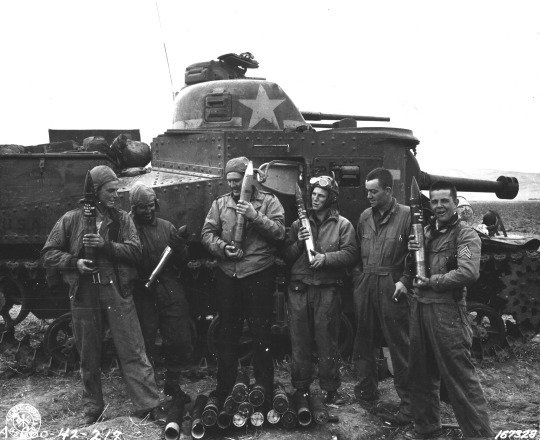
Equipage d'un char M3 Lee de la Compagnie D, 2e Bataillon du 13e Régiment de la 1ère Division blindée américaine – Campagne de Tunisie – Campagne d'Afrique du Nord – Souk El Arbaa (Jendouba) – Tunisie – 23 novembre 1942
©U.S. Army Signal Corps - NA-COO-42-217
#WWII#campagne d'afrique du nord#north african campaign#campagne de tunisie#tunisia campaign#armée américaine#american army#US Army#1ère Division blindée US#1st Armored Division#char#tanks#char moyen#medium tank#M3 Lee#souk el arbaa#jendouba#tunisie#tunisia#23/11/1942#11/1942#1942
87 notes
·
View notes
Text

How accurate is the new Napoleon film? Sorting fact from fiction (Andrew Roberts, The Sunday Times, Nov 19 2023)
"Sir Ridley Scott’s long-awaited movie Napoleon will have a great effect on how the French emperor is viewed in the popular imagination.
So it was with some trepidation that I watched it.
Would it reproduce the old Anglo-American historical stereotype of a jumped-up Corsican tyrant, or might it recognise that in fact Napoleon created the Enlightenment’s institutions, many of which last to this day?
For here was an opportunity to change the tired conventional view of Napoleon put forward by so many postwar Anglophone historians that Napoleon was essentially merely a prototype for Adolf Hitler.
Sadly and somewhat predictably for an 85-year-old whose mindset was formed by the Second World War, Scott has gone for the intellectually discredited stereotype of a dictator who goes mad with hubris. (…)
Scott has remarked before that “f***ing historians” don’t know what happened in Napoleonic times because “they weren’t there”.
But in fact there is a plethora of believable first-hand accounts from people who were indeed there, used by historians to discover what happened.
What these first-hand accounts tell us is that Napoleon was a witty, highly intellectual and attractive personality, whose reforms changed first France and then Europe for the better.
Whenever his armies entered European cities they liberated the Jews from their ghettos, giving them civil and religious liberties.
He was therefore precisely the opposite of the malignant, humourless, Jew-hating Führer. (…)
So firm is the assumption that Napoleon’s psyche had “run wild” that he is given the line to Joséphine: “I must begin my march to Moscow.”
Yet the whole point of the 1812 campaign was that Napoleon had no intention of going more than 50 miles inside Russia, in what was intended to be a three-week campaign.
As he crossed the river Niemen, there was no “march to Moscow”.
There are plenty of people in history who have a Napoleon complex, but Napoleon himself was not one of them, despite what Scott and Kirby might say.
This show also assumes Napoleon lost in Russia solely because the weather got cold in winter, as if the highly intelligent and well-read emperor did not know it would.
No mention is made of the typhus that killed 100,000 men, which Napoleon could not have foreseen.
At one point in the movie, Joséphine forces Napoleon to say: “I am just a brute that is nothing without you.”
Quite apart from the appalling syntax, the line, like so many in this visually stunning but historically tone-deaf film, fails to ring true.
Yet it is not from thousand-page biographies that the mass of people take their history today, but from movies like this.
Henceforth, therefore, Napoleon Bonaparte — the great world force of the Enlightenment who ended the French Revolution and dragged country after country out of ancien-regime torpor and into the vibrant 19th century — will merely be a brute who was nothing without his Joséphine."
273 notes
·
View notes
Text
In a new article titled “Ukraine’s Lack of Weaponry and Training Risks Stalemate in Fight With Russia,” The Wall Street Journal’s Daniel Michaels reports that western officials knew Ukrainian forces didn’t have the weapons and training necessary to succeed in their highly touted counteroffensive which was launched last month.
Michaels writes:
“When Ukraine launched its big counteroffensive this spring, Western military officials knew Kyiv didn’t have all the training or weapons — from shells to warplanes — that it needed to dislodge Russian forces. But they hoped Ukrainian courage and resourcefulness would carry the day.
“They haven’t. Deep and deadly minefields, extensive fortifications and Russian air power have combined to largely block significant advances by Ukrainian troops. Instead, the campaign risks descending into a stalemate with the potential to burn through lives and equipment without a major shift in momentum.”

The claim that western officials had sincerely believed Ukrainian forces might be able to overcome their glaring deficits through sheer pluck and ticker is undermined later in the same article by a war pundit who says the US would never attempt such a counteroffensive without first controlling the skies, which Ukraine doesn’t have the ability to do:
“America would never attempt to defeat a prepared defense without air superiority, but they [Ukrainians] don’t have air superiority,” the U.S. Army War College’s John Nagl told WSJ. “It’s impossible to overstate how important air superiority is for fighting a ground fight at a reasonable cost in casualties.”
Antiwar’s Dave DeCamp writes the following on the latest WSJ revelation:
“Leading up to the Ukrainian counteroffensive, which was launched in June, the Discord leaks and media reports revealed that the US did not believe Ukraine could regain much territory from Russia. But the Biden administration pushed for the assault anyway, as it rejected the idea of a pause in fighting.”
So the empire is still knowingly throwing Ukrainian lives into the meat grinder of an unwinnable proxy war, even as western officials tell the public that this war is about saving Ukrainian lives and handing Putin a crushing defeat whenever they’re on camera.
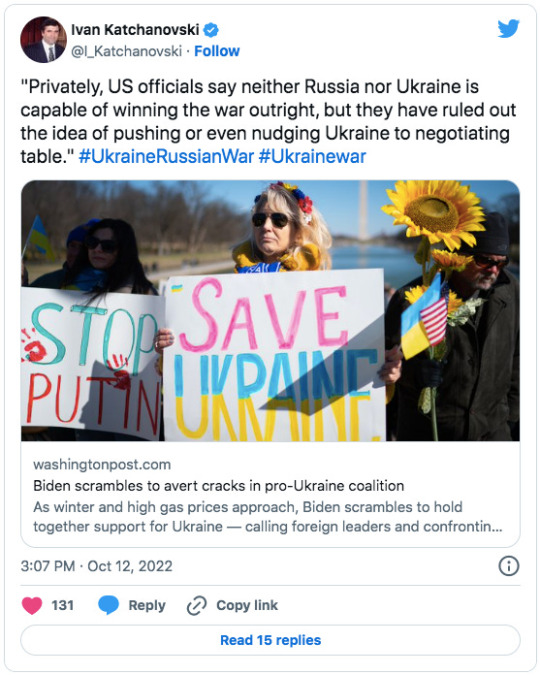
This attitude from the empire is not a new development. Last October The Washington Post reported that “Privately, U.S. officials say neither Russia nor Ukraine is capable of winning the war outright, but they have ruled out the idea of pushing or even nudging Ukraine to the negotiating table.”
Now why might that be? Why would the western empire be so comfortable encouraging Ukrainians to keep fighting when it knows they can’t win?
We find our answer in another Washington Post article titled “The West feels gloomy about Ukraine. Here’s why it shouldn’t.”, authored last week by virulent empire propagandist David Ignatius. In his eagerness to frame the floundering counteroffensive in a positive light for his American audience, Ignatius let slip an inconvenient truth:
“Meanwhile, for the United States and its NATO allies, these 18 months of war have been a strategic windfall, at relatively low cost (other than for the Ukrainians). The West’s most reckless antagonist has been rocked. NATO has grown much stronger with the additions of Sweden and Finland. Germany has weaned itself from dependence on Russian energy and, in many ways, rediscovered its sense of values. NATO squabbles make headlines, but overall, this has been a triumphal summer for the alliance.”
Anyone who believes this proxy war is about helping Ukrainians should be made to read that paragraph over and over again until it sinks in. The admission that the US-centralized power structure benefits immensely from this proxy conflict is revealing enough, but that parenthetical “other than for the Ukrainians” aside really drives it home. It reads as though it was added as an afterthought, like “Oh yeah it’s actually kind of rough on the Ukrainians though — if you consider them to be people.”
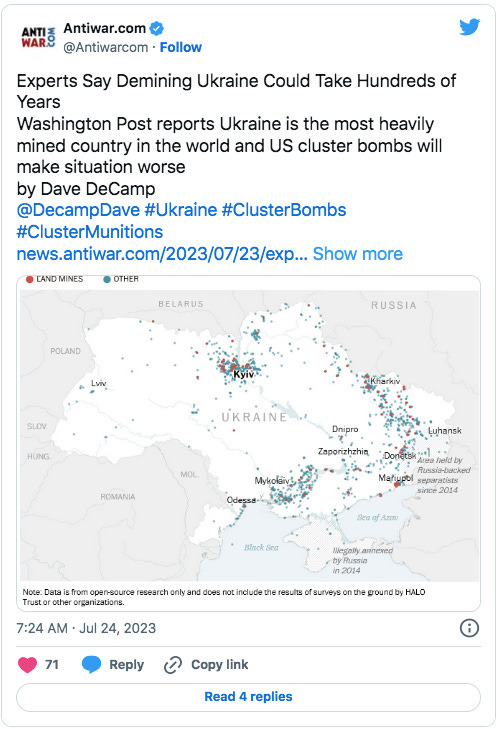
The claim that this war is about helping Ukrainians has been further undermined by another new Washington Post report that Ukraine is now more riddled with land mines than any other nation on earth, and that US-supplied cluster munitions are only making the land more deadly.
That’s right kids! We’re turning Ukraine into an uninhabitable wasteland of death and dismemberment to save the Ukrainians.
We should probably talk more about the fact that the US empire is loudly promoting the goal of achieving peace in Ukraine by defeating Russia while quietly acknowledging that this goal is impossible. This is like accelerating toward a brick wall and pretending it’s an open road.
The narrative that Russia can be beaten by ramping up proxy warfare against it makes sense if you believe Russia can be militarily defeated in Ukraine, but the US empire does not believe that Russia can be militarily defeated in Ukraine. It knows that continuing this war is only going to perpetuate the death and devastation.
“Beat Putin’s ass and make him withdraw” sounds cool and is egoically gratifying, and it’s become the mainstream answer to the problem of the war in Ukraine, but nobody promoting that answer can address the fact that the ones driving this proxy war believe it’s impossible. In fact, all evidence we’re seeing suggests that the US is not trying to deliver Putin a crushing defeat in Ukraine and force him to withdraw, but is rather trying to create another long and costly military quagmire for Moscow, as western cold warriors have done repeatedly in instances like Afghanistan and Syria.
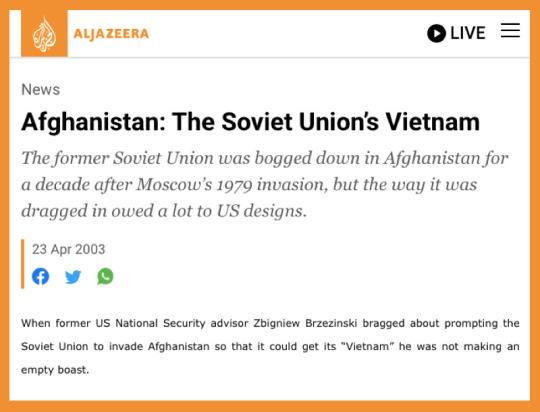
Wanting to weaken Russia and wanting to save lives and establish peace in Ukraine are two completely different goals, so different that in practice they wind up being largely contradictory. Drawing Moscow into a bloody quagmire means many more people dying in a war that drags on for years, with all the immense human suffering that that entails.
The US does not want peace in Ukraine, it wants to overextend Russia, shore up military and energy dominance over Europe, expand its war machine and enrich the military-industrial complex. That’s why it knowingly provoked this war. It’s posing as Ukraine’s savior while being clearly invested in Ukraine’s destruction.
It is not legitimate to support this proxy war without squarely addressing this massive contradiction using hard facts and robust argumentation. Nobody ever has.
#caitlin johnstone#ukraine conflict#us imperialism#nato#nato propaganda#ukraine#russia#united states
346 notes
·
View notes
Photo

The history of Christmas traditions kept evolving throughout the 19th century, when most of the familiar components of the modern Christmas including St. Nicholas, Santa Claus, and Christmas trees, became popular. The changes in how Christmas was celebrated were so profound that it's safe to say someone alive in 1800 would not even recognize the Christmas celebrations held in 1900.
Washington Irving and St. Nicholas
Early Dutch settlers of New York considered St. Nicholas to be their patron saint and practiced a yearly ritual of hanging stockings to receive presents on St. Nicholas Eve, in early December. Washington Irving, in his fanciful History of New York, mentioned that St. Nicholas had a wagon he could ride “over the tops of trees” when he brought “his yearly presents to children.”
The Dutch word “Sinterklaas” for St. Nicholas evolved into the English “Santa Claus,” thanks in part to a New York City printer, William Gilley, who published an anonymous poem referring to “Santeclaus” in a children’s book in 1821. The poem was also the first mention of a character based on St. Nicholas having a sleigh, in this case, pulled by a single reindeer.
Clement Clarke Moore and The Night Before Christmas
Perhaps the best-known poem in the English language is “A Visit from St. Nicholas,” or as it’s often called, “The Night Before Christmas.” Its author, Clement Clarke Moore, a professor who owned an estate on the west side of Manhattan, would have been quite familiar with the St. Nicholas traditions followed in early 19th century New York. The poem was first published, anonymously, in a newspaper in Troy, New York, on December 23, 1823.
Reading the poem today, one might assume that Moore simply portrayed the common traditions. Yet he actually did something quite radical by changing some of the traditions while also describing features that were entirely new.
For instance, the St. Nicholas gift giving would have taken place on December 5, the eve of St. Nicholas Day. Moore moved the events he describes to Christmas Eve. He also came up with the concept of “St. Nick” having eight reindeer, each of them with a distinctive name.
Charles Dickens and A Christmas Carol
The other great work of Christmas literature from the 19th century is A Christmas Carol by Charles Dickens. In writing the tale of Ebenezer Scrooge, Dickens wanted to comment on greed in Victorian Britain. He also made Christmas a more prominent holiday and permanently associated himself with Christmas celebrations.
Dickens was inspired to write his classic story after speaking to working people in the industrial city of Manchester, England, in early October 1843. He wrote A Christmas Carol quickly, and when it appeared in bookstores the week before Christmas 1843 it began to sell very well.
The book crossed the Atlantic and began to sell in America in time for Christmas 1844, and became extremely popular. When Dickens made his second trip to America in 1867 crowds clamored to hear him read from A Christmas Carol. His tale of Scrooge and the true meaning of Christmas had become an American favorite. The story has never been out of print, and Scrooge is one of the best-known characters in literature.
Santa Claus Drawn by Thomas Nast
The famed American cartoonist Thomas Nast is generally credited as having invented the modern depiction of Santa Claus. Nast, who had worked as a magazine illustrator and created campaign posters for Abraham Lincoln in 1860, was hired by Harper’s Weekly in 1862. For the Christmas season, he was assigned to draw the magazine’s cover, and legend has it that Lincoln himself requested a depiction of Santa Claus visiting Union troops.
The resulting cover, from Harper’s Weekly dated January 3, 1863, was a hit. It shows Santa Claus on his sleigh, which has arrived at a U.S. Army camp festooned with a “Welcome Santa Claus” sign.
Santa’s suit features the stars and stripes of the American flag, and he’s distributing Christmas packages to the soldiers. One soldier is holding up a new pair of socks, which might be a boring present today, but would have been a highly prized item in the Army of the Potomac.
Beneath Nast's illustration was the caption, “Santa Claus In Camp.” Appearing not long after the carnage at Antietam and Fredericksburg, the magazine cover is an apparent attempt to boost morale in a dark time.
The Santa Claus illustrations proved so popular that Thomas Nast kept drawing them every year for decades. He is also credited with creating the notion that Santa lived at the North Pole and kept a workshop manned by elves. The figure of Santa Claus endured, with the version drawn by Nast becoming the accepted standard version of the character. By the early 20th century the Nast-inspired version of Santa became a very common figure in advertising.
Prince Albert and Queen Victoria Made Christmas Trees Fashionable
The tradition of the Christmas tree came from Germany, and there are accounts of early 19th century Christmas trees in America, but the custom wasn’t widespread outside German communities.
The Christmas tree first gained popularity in British and American society thanks to the husband of Queen Victoria, the German-born Prince Albert. He installed a decorated Christmas tree at Windsor Castle in 1841, and woodcut illustrations of the Royal Family’s tree appeared in London magazines in 1848. Those illustrations, published in America a year later, created the fashionable impression of the Christmas tree in upper-class homes.
By the late 1850s reports of Christmas trees were appearing in American newspapers. And in the years following the Civil War ordinary American households celebrated the season by decorating a Christmas tree.
The first electric Christmas tree lights appeared in the 1880s, thanks to an associate of Thomas Edison, but were too costly for most households. Most people in the 1800s lit their Christmas trees with small candles.
The First White House Christmas Tree
The first Christmas tree in the White House was displayed in 1889, during the presidency of Benjamin Harrison. The Harrison family, including his young grandchildren, decorated the tree with toy soldiers and glass ornaments for their small family gathering.
There are some reports of president Franklin Pierce displaying a Christmas tree in the early 1850s. But the stories of a Pierce tree are vague and there doesn't seem to be contemporaneous mentions in newspapers of the time.
Benjamin Harrison's Christmas cheer was closely documented in newspaper accounts. An article on the front page of the New York Times on Christmas Day 1889 detailed the lavish presents he was going to give his grandchildren. And though Harrison was generally regarded as a fairly serious person, he vigorously embraced the Christmas spirit.
Not all subsequent presidents continued the tradition of having a Christmas tree in the White House. By the middle of the 20th century, White House Christmas trees became established. And over the years it has evolved into an elaborate and very public production.
The first National Christmas Tree was placed on The Ellipse, an area just south of the White House, in 1923, and the lighting of it was presided over by President Calvin Coolidge. The lighting of the National Christmas Tree has become quite a large annual event, typically presided over by the current president and members of the First Family.
Yes, Virginia, There Is a Santa Claus
In 1897 an eight-year-old girl in New York City wrote to a newspaper, the New York Sun, asking if her friends, who doubted the existence of Santa Claus, were right. An editor at the newspaper, Francis Pharcellus Church, responded by publishing, on September 21, 1897, an unsigned editorial. The response to the little girl has become the most famous newspaper editorial ever printed.
The second paragraph is often quoted:
"Yes, VIRGINIA, there is a Santa Claus. He exists as certainly as love and generosity and devotion exist, and you know that they abound and give to your life its highest beauty and joy. Alas! how dreary would be the world if there were no Santa Claus. It would be as dreary as if there were no VIRGINIAS."
Church’s eloquent editorial asserting the existence of Santa Claus seemed a fitting conclusion to a century that began with modest observances of St. Nicholas and ended with the foundations of the modern Christmas season firmly intact.
By the end of the 19th century, the essential components of a modern Christmas, from Santa to the story of Scrooge to strings of electric lights were firmly established in America.
Source
182 notes
·
View notes
Text
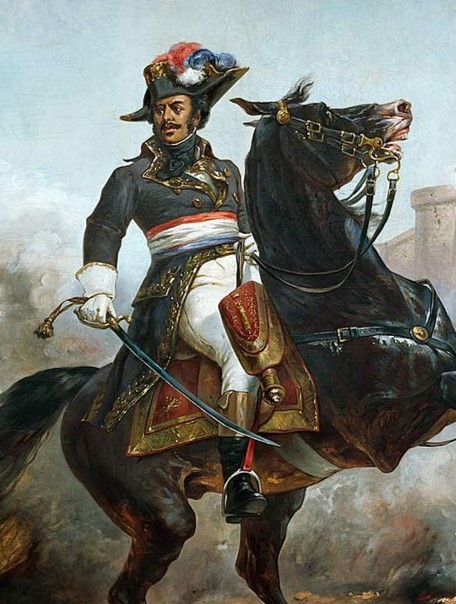
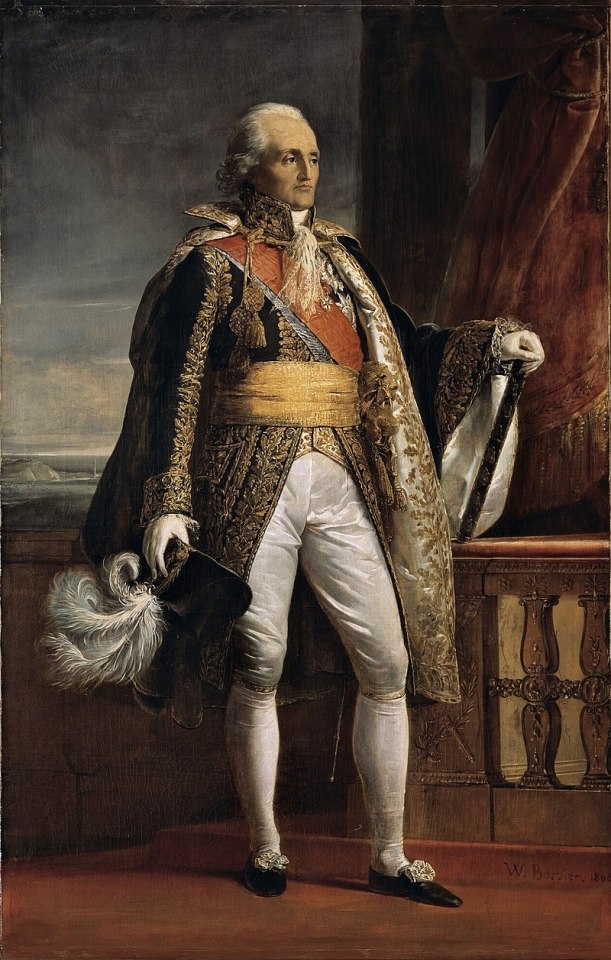
Thomas-Alexandre Dumas:
“mustache”
“Tall! Daring! Swashbuckling! A devoted husband and father! Had a personal conflict with Napoleon! Also it was said he could, while holding onto a bar above his head, LIFT A HORSE WITH HIS THIGHS. How is he not on this list ten times already! Vote for General Dumas!”
“He was so hot that he inspired The Three Musketeers, The Count of Monte Cristo, and many more books that his son, Alexandre Dumas, wrote. He definitely looked the part of a sexyman, as he son recounts in his memoirs: "My father, as already stated, was twenty-four, and as handsome a young fellow as could be found anywhere. His complexion was dark, his eyes of a rich chestnut colour [...]. His teeth were white, his lips mobile, his neck well set on his powerful shoulders, and, in spite of his height of five feet nine inches, he had the hands and feet of a woman. These feet were the envy of his mistresses, whose shoes he was very rarely able to put on." He could crush you between his thighs: "His free colonial life had developed his strength and prowess to an extraordinary degree; he was a veritable American horse-lad, a cowboy. His skill with gun or pistol was the envy of St. Georges and Junot. And his muscular strength became a proverb in the army. More than once he amused himself in the riding-school by passing under a beam, and lifting his horse between his legs." He was so badass he could beat 13 men with 4 and take all the enemy prisoner, and defend against hundreds of men on a bridge by himself. He performed these acts of valour numerous times in Italy. He was so formidable that the Austrians named him the "Schwartz Teufel", or the Black Devil, and his feat at the bridge earned him the moniker of "Horatius Cocles of Tyrol". He wasn't afraid to stand up to his morals and protest against unfair treatment. When unjust executions by the guillotine were happening outside his quarters, he closed the blinds of his curtains, earning him the nickname "Mr. Humanity". When in the Vendée, he complained about the wanton indiscipline in his troops. When in Italy, Berthier wrongly reported his actions as one of "observation" in St. Antonio. Dumas wrote to General Bonaparte that if Berthier was in the same position, he would have shit his pants. Dumas abhorred plunder, never exhorted the locals, and ordered the Directory agent who had come to persuade him otherwise be shot if he dared present himself to Dumas again. Integrity and a sense of moral justice is sexy, mark my words. For Dumas' final qualifier as a sexyman, look no further than this Tumblr heritage post (https://www.tumblr.com/petermorwood/133803437020/hortensevanuppity-elodieunderglass), with 300,000 notes and counting. And I quote: "- daddy general dumas was an immense fierce french warrior who was a 6 foot plus, stunningly gorgeous and charismatic Black gentleman - he invaded egypt - the native egyptians said “is this napoleon? this must be napoleon. we for one welcome our majestic new overlord” - then napoleon showed up - napoleon has all the presence of yesterday’s plain Tesco hummus - the native egyptians were like “… no… no, we’ve thought very hard and we’ll have General Dumas actually” - this did not make napoleon happy - in fact it made him jealous - napoleon felt so emasculated that he launched a campaign of revenge against General Dumas, including taking away his pension, that probably inspired a lot of Alexandre’s rather satisfying scenes in which fathers are nobly avenged and the money-grubbing villains are rubbed in the mud" I rest my case. Tl;dr: He was so hot he inspired multiple books, he was a stronk man who could crush you between his thighs or carry you like a sack of potatoes, and he was so badass that he could take on odds of 1 to 3. He had a foul mouth but a heart of gold and his actions were never self-serving. Posts relating to him on Tumblr have had 300,000 notes and counting. He is qualitatively and quantitatively qualified to be a sexyman.”
Bon-Adrien Jeannot de Moncey
“Honesty and integrity (letter to Louis XVIII against sitting for Ney's court-martial, getting imprisoned for 3 months for it). Very sexy. Defending the capital (Paris) is also very sexy.”
114 notes
·
View notes